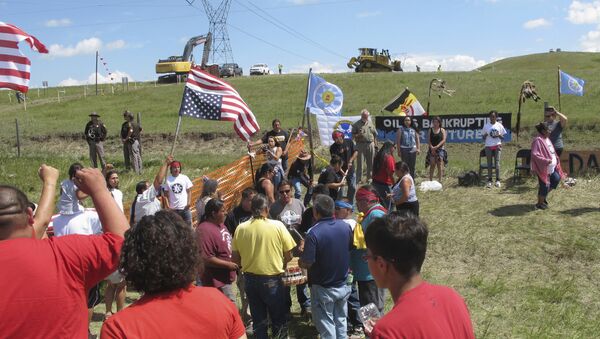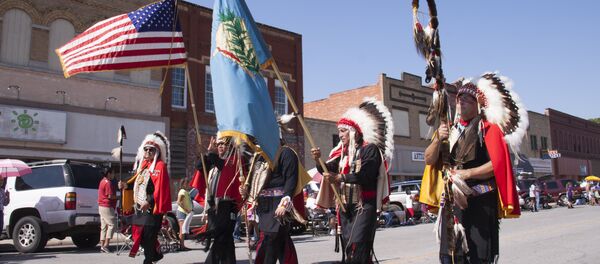Quickly following Boasberg’s ruling, three government agencies including the US Departments of Justice, Army and Interior, issued a joint statement that there is a necessity to "reconsider any of its [government’s] previous decisions" on construction in the vicinity of important waterways, calling on construction companies to "voluntarily pause" works within 20 mile-range around Lake Oahe.
"This case has highlighted the need for a serious discussion on whether there should be nationwide reform with respect to considering tribes' views on these types of infrastructure projects," the government agency statement reads, adding also to invite tribal leaders to a multilateral discussion on the issue.
Opposition to the pipeline has grown into a national movement, supported by 200 Native American tribes and public figures including Green Party presidential candidate Jill Stein and celebrities like actress Susan Sarandon and Shailene Woodley.
Several rallies, including one on the day of the court decision, have been undertaken. Protesters, met with the ruling, have refused to give up.
"The tribes' attempts to stop construction have been denied," the Red Warrior Camp said in a Facebook statement, immediately after the judge's ruling. "Stay peaceful without backing down."
Tribes have filed a lawsuit to the court of appeals regarding Boasberg’s ruling.




